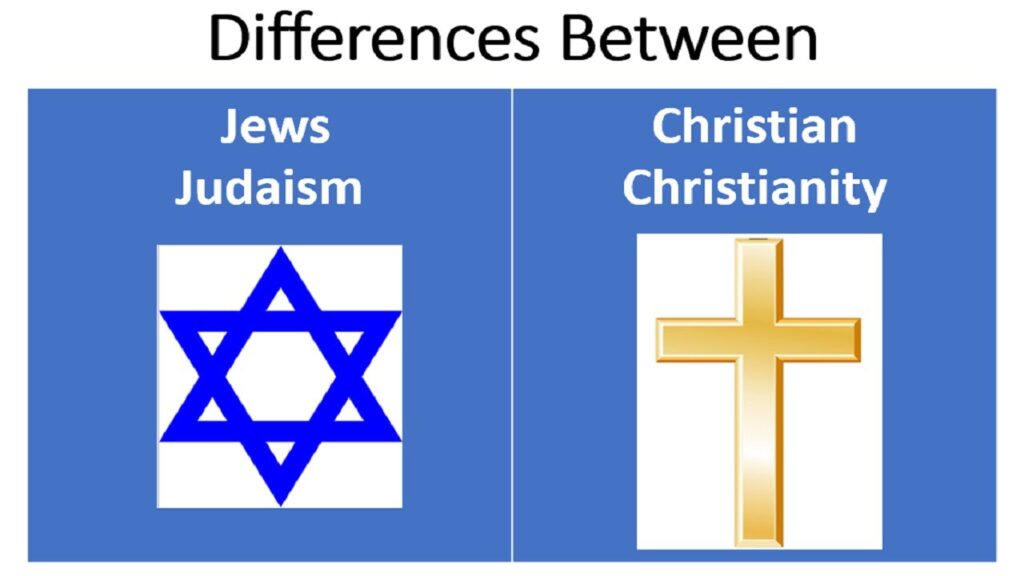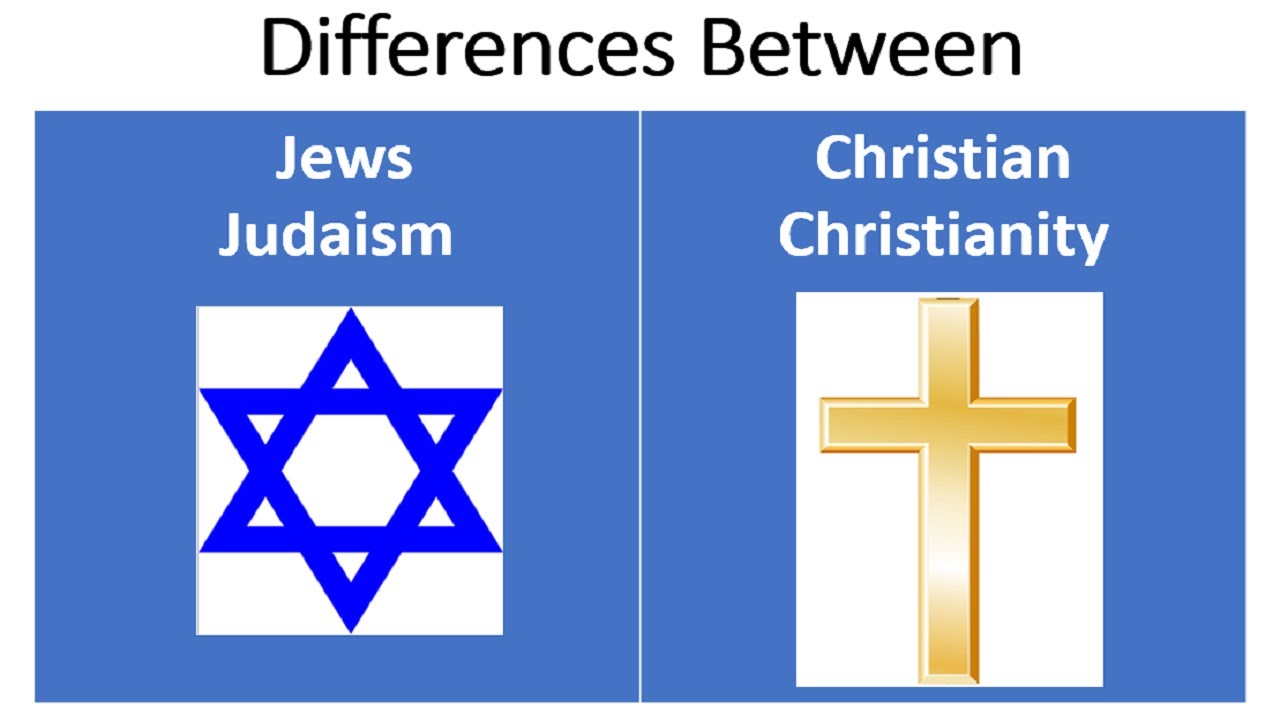Christianity and Judaism are closely related and, out of all major world religions, Christianity and Judaism are typically regarded as the most similar, in fact, Christianity has evolved from Judaism.

Judaism and Christianity are both monotheistic religions that have similar origins but varying beliefs, practices, and teachings.
Though the two religions are among the oldest and largest faiths in the world, believing that there is only one God, their belief systems are however, more different than they are alike. To better understand how these faiths differ, review some key differences in Judaism vs. Christianity.
The Old Testament
The Old Testament of the Hebrew Bible is a central religious text in Judaism and Christianity alike. However, the two religions do not interpret the Old Testament in the same ways.
Christians view the Old Testament as the first part of a story, which is completed in the New Testament through the Salvation of Jesus Christ, the Messiah.
In Judaism, the central message of the Old Testament focuses on how God called Abraham to lead and set an example of obedience to the word of God.
The New Testament
The New Testament of the Bible is integral to Christianity but is not part of Judaism at all. It focuses on the life, death and resurrection of Jesus Christ.
The Torah
The Torah represents the first part of the Jewish Bible. It is made up of the first five books of the Old Testament. Because the Old Testament is part of Christianity, Jews and Christians alike accept these books.
From Adam To Noah: The Significance Of Their Names
Jews believe that the Torah specifies God’s instructions for how Jews should live. They believe that the Torah was dictated to Moses directly by God.
These five books are simply considered part of the Old Testament in Christianity. They aren’t any more or less significant than the rest of the Old Testament.
Trinity vs. Oneness
Judaism and Christianity do not share common beliefs about the nature of God as a divine being.
In Christianity, God is viewed as a Holy Trinity, consisting of the Father, the Son (Jesus) and the Holy Spirit. Christians believe that Jesus became man.
Judaism is based on the concept of the Oneness of God as a sole divine being.
Salvation
Judaism does not see human beings as inherently flawed or sinful and needful of being saved from it, but rather capable with a free will of being righteous, and unlike Christianity does not closely associate ideas of “salvation” with a New Covenant delivered by a Jewish messiah, although in Judaism, Jewish people will have a renewed national commitment of observing God’s commandments under the New Covenant, and the Jewish Messiah will also be ruling at a time of global peace and acceptance of God by all people.
Judaism holds instead that proper living is accomplished through good works and heartfelt prayer, as well as a strong faith in God. Judaism also teaches that gentiles can receive a share in “the world to come”. This is codified in the Mishna Avot 4:29, the Babylonian Talmud in tractates Avodah Zarah 10b, and Ketubot 111b, and in Maimonides’s 12th century law code, the Mishneh Torah, in Hilkhot Melachim (Laws of Kings) 8.11.
History of Christianity In The United States
However, Christianity believes according to the New Testament, that every human is a sinner, and being saved by God’s grace, not simply by the merit of one’s own actions, pardons a damnatory sentence to Hell.
Forgiveness
In Judaism, one must go to those he has harmed to be entitled to forgiveness. This means that in Judaism a person cannot obtain forgiveness from God for wrongs the person has done to other people. This also means that, unless the victim forgave the perpetrator before he died, murder is unforgivable in Judaism, and they will answer to God for it, though the victims’ family and friends can forgive the murderer for the grief they caused them.
Thus the “reward” for forgiving others is not God’s forgiveness for wrongs done to others, but rather help in obtaining forgiveness from the other person.
Sir Jonathan Sacks, Chief Rabbi of the United Hebrew Congregations of the Commonwealth, summarized: “it is not that God forgives, while human beings do not. To the contrary, we believe that just as only God can forgive sins against God, so only human beings can forgive sins against human beings.”
Religious Significance of Jerusalem
In both Judaism and Christianity, Jerusalem is viewed as a sacred place of great religious significance.
The Temple Mount in Jerusalem is the most sacred site in Judaism, largely due to the temples that once stood there. Jewish people face Jerusalem when they pray.
Jerusalem is important in Christianity because of its role in the life of Jesus. It is where he lived and ministered as well as where he was crucified and resurrected.
Recognizable Symbols
The most recognizable symbol of Judaism is the Star of David. The most recognizable symbol of Christianity is the cross.
Judaism vs. Christianity: Significant Similarities
There are a few similarities Between Judaism and Christianity. Key aspects of faith shared by both religions include:
- monotheism (belief in a single God)
- the Old Testament of Hebrew Bible
- the 10 Commandments
Note: YourDictionary; Wikipedia
Last modified: May 14, 2024






